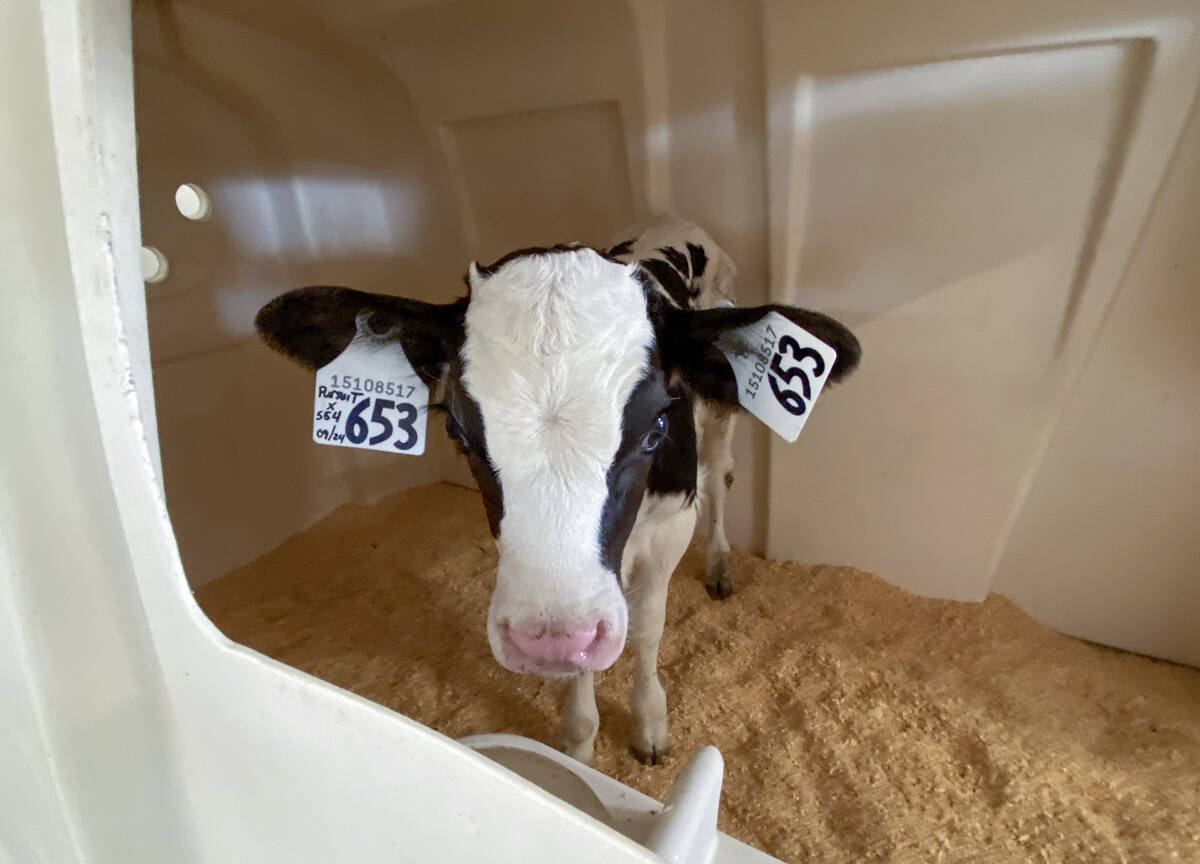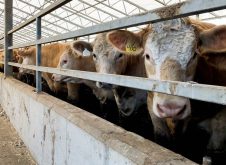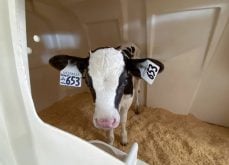Colostrum at birth is key for the long-term success of dairy cows, but there’s more scrutiny on it’s benefits as more young calves move into the dairy-beef system.
Why it matters: Changes in calf care are required if animals are to thrive in the new system of dairy-beef production.
Calves are moved early in life to assembly yards and auctions and then to calf nurseries where they are raised, and Dr. Lucia Lisoni, a post-doctoral researcher at the University of Guelph, says too many fail in their passive immunity.
Read Also

Lactanet turns methane expertise into business opportunity
Lactanet’s new fee-for-service breeding tool initiative to reduce greenhouse gas emissions in Canadian and Swiss Holstein herds will launch in April 2026.
Calves are born with little immunity and much of their defence against disease is kick-started when they drink colostrum shortly after birth. The level of immunity can be measured through a blood test.
Lisoni reported at the 2024 Healthy Calf Conference, put on by Veal Farmers of Ontario, that “12 to 43 per cent of male calves entering the dairy-beef industry suffer from failure of passive immunity.”
He found that getting adequate colostrum at the birth farm is critical to calf health through transport to the farm where they will be raised.
Hannah McCarthy conducted her University of Guelph master’s research on colostrum feeding. She says it’s well-known that maintaining a healthy calf before weaning affects the calf’s age at first lactation, first lactation yield, lifetime yield and therefore lifetime profitability.
She told the Healthy Calf Conference that a new scale for colostrum feeding provides graduated guidance on how much immunoglobulin is needed in a calf’s blood. Successful passive immunity continues to be greater than 10 grams per litre.
Under the new scale:
- Poor is less than 10 g per litre
- Fair is 10 to 17.9 g per litre
- Good is 18 to 24.9 g per litre
- Excellent is greater than 25 g per litre
“As you move from fair to excellent, you’re going to see reductions in the rates of disease in your calves, as well as the rates of mortality,” she says.
Researchers are validating the importance of colostrum as a source of immunity and energy for dairy beef calves transported when they are young.
In a study conducted in Spain, two groups of calves were fed two litres and 10 litres of colostrum at birth. They were transported at 14 days of age to an assembly centre and studied. The calves had all achieved passive immunity, but the calves that received 10 litres of colostrum were on average two kilograms heavier than the calves fed two litres.
Colostrum is about more than immunity, says Lisoni. It also affects development of the intestines.
It’s challenging to feed calves during transportation and at an assembly yard, so some assembly yards feed a rehydrating solution before the calf goes to the farm where it will be raised and finished.
Lisoni worked on research in which some calves were fed a rehydrating solution and some were fed milk replacer at the assembly point. The calves given milk replacer regained lost weight quicker after trucking.
In a second similar trial, calves were fed milk replacer, acidified milk replacer and milk replacer and concentrate and acidified milk replacer with concentrate – a higher level of nutrition than in the previous study. The calves all recovered their weight similarly, regardless of the treatment.
Stressed calves can develop gaps between enterocyte cells in the intestine, which allows large particles, including those that cause infection, to penetrate the intestinal wall and enter the bloodstream. Maintaining a high level of nutrition can limit this risk.















